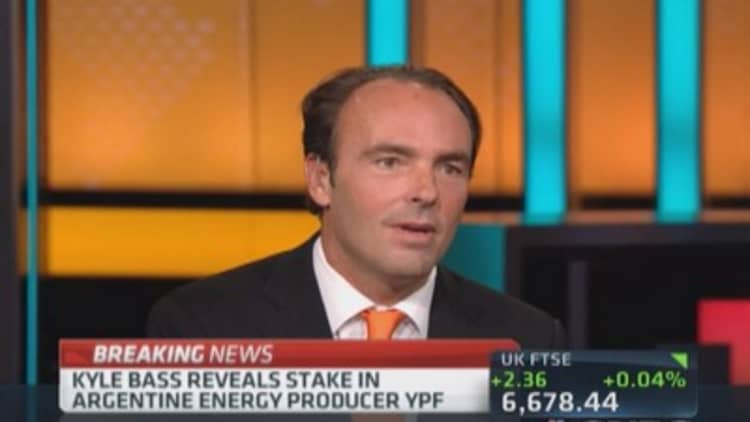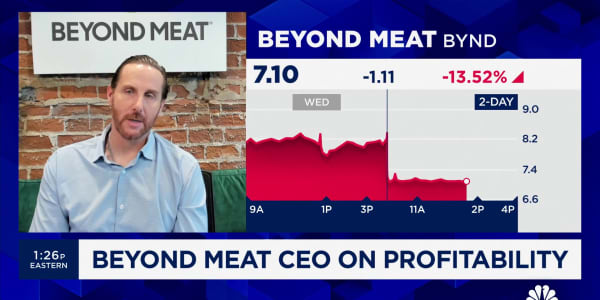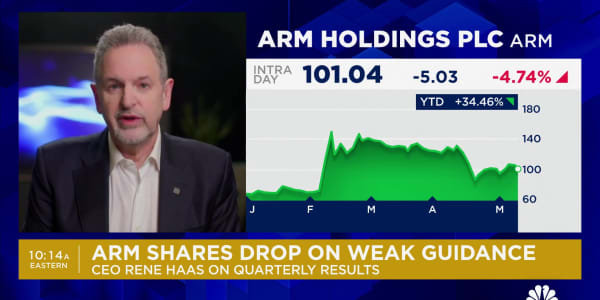For the secretive hedge fund Elliott Management, this New Year's Eve will mark more than just the closing prices of its 2014 investments. It will represent a potential turning point in a yearslong dispute with the Republic of Argentina over bonds the country defaulted on during its last big financial crisis.
On Dec. 31, a key clause expires in the offering documents associated with two particular Argentina bond swaps — transactions that it used to substitute new investor bonds for ones it defaulted on in 2001 in exchange for substantial, but not full, payments. And the sunsetting of that clause could pave the way for the settlement of a rancorous dispute with Elliott and other creditors who refused to accept the so-called exchange bonds and instead held out to be made entirely whole.
Some experienced bond market investors, saying there is little upside for Argentina to continue its costly standoff, are expecting the country to offer a new and sweeter deal to Elliott that the litigious hedge fund will accept. But Argentine officials aren't revealing much as the deadline approaches.
"Argentina has always been open to dialogue," said Cecilia Nahón, Argentina's ambassador to the U.S., in a recent telephone interview. She declined to comment on the rights upon future offers, or RUFO, clause specifically, but said that her country had been willing to settle with Elliott, on the same terms offered to other bondholders, for some time now.
"There's an offer on the table to join the other 92.4 percent of bondholders" who accepted the prior exchange offer, "for a 300 percent profit," she said. Elliott and the other investors who have sued for full payment — a group of money managers Nahón and other high-ranking members of the Argentine government refer to as "vulture funds" — are "seeking an exorbitant 1,600 percent profit," she said, which "is not only unfair but also puts at risk any debt restructuring."

The $25 billion Elliott has long maintained that it is open to negotiating with the republic for a new settlement over the sovereign debt. Elliott is known for its pugilistic stances towards the Federal Reserve's monetary policy and technology companies such as Riverbed Technology, as well as lapsed borrowers like Argentina, from which it seized a naval ship in 2012 in an effort to claim assets it could sell for cash to compensate it for holding the country's languishing bonds.
Read MorePaul Singer: The 'unfair' recovery is Fed's fault
But people close to the hedge fund say that given its intransigence so far, the prospect of a January settlement is far from certain.
A spokesman for Elliott declined to comment for this article.
Argentine President Cristina Fernandez de Kirchner, who recently referred to Elliott and its fellow plaintiffs in the ongoing litigation as "financial terrorists," allowed her country to enter a new state of legal default late in July rather than pay Elliott the roughly $1.5 billion it is legally owed.
Since then, her administration has employed sharp rhetoric toward the holdouts, the federal judge who has found in the plaintiffs' favor in ongoing litigation and even the U.S. government more broadly, even as economic challenges persist in Argentina, where the currency has swooned this year and inflation has risen. Meanwhile, Kirchner and her ministers have avoided using the word "default," which they consider to be a politically loaded misnomer.
Read MoreBond holder slams Argentina's 'broken promise'
Given that stance, many observers don't expect to see a resolution of the Elliott standoff until a new presidential administration takes over in Argentina late in 2015. (Term limits prevent Kirchner from seeking another term in the country's October presidential elections.)
Still, they could be proved wrong.
Argentine economy minister Axel Kiciloff told a Mexican newspaper in early November that there would be "better possibilities to talk with creditors" at the end of this year, presumably thanks to the expiration of the RUFO clause. And settlements reached recently with other creditors, including the Spanish energy company Repsol and the Paris Club of lender nations, have offered some reason for encouragement, too.






